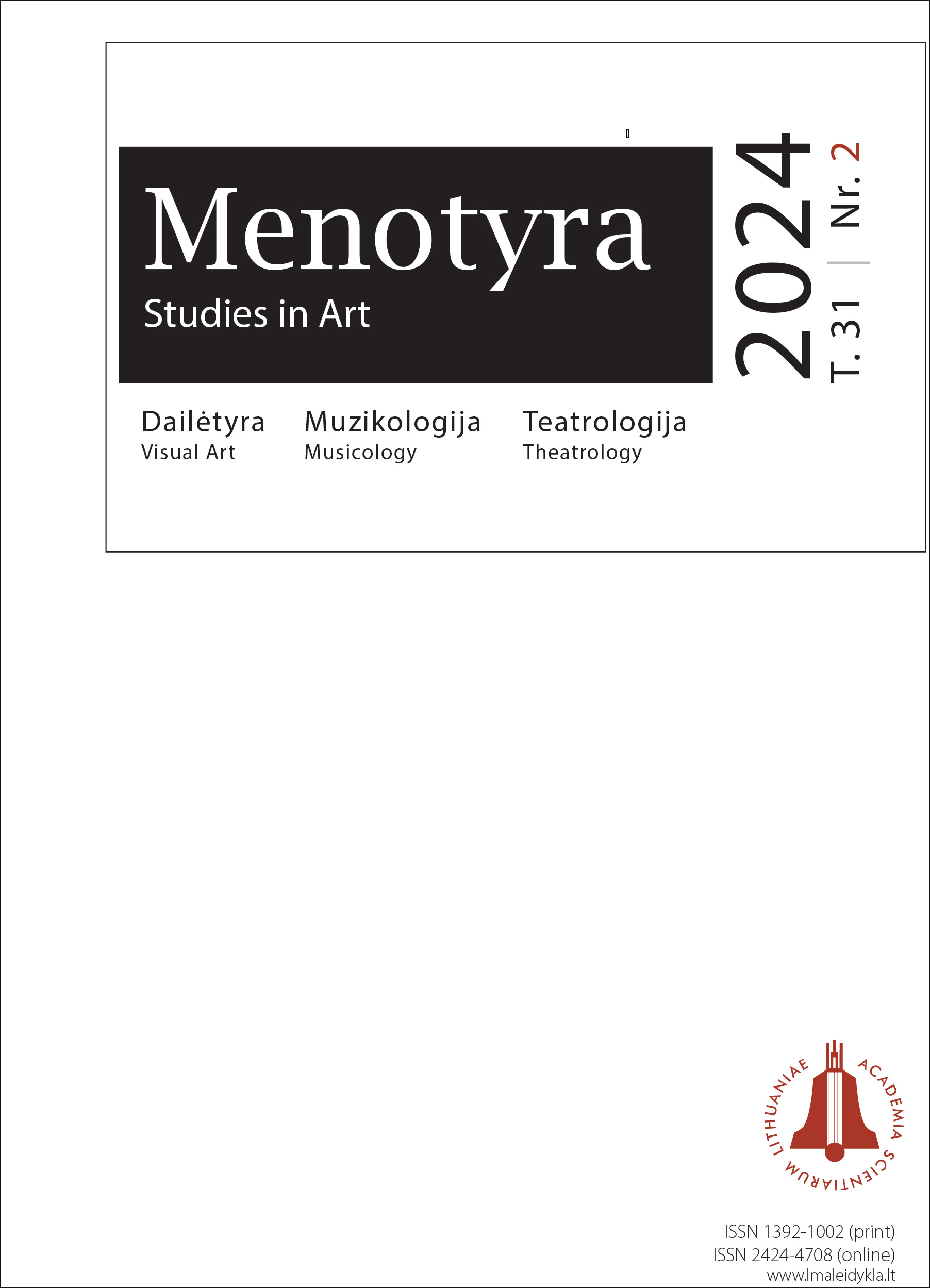Posthumanistinis kraštovaizdis Lietuvos fotografijoje
The Posthuman Landscape in Lithuanian Photography
Author(s): Margarita MatulytėSubject(s): Photography, History of Art
Published by: Lietuvos mokslų akademijos leidykla
Keywords: landscape photography; visionaries; future of civilisation; posthumanism; artificial intelligence (AI);
Summary/Abstract: he object of the research presented in this article is the posthuman landscapes that artists create by de-objectifying reality through photography, thus transforming its matter into imaginary landscapes of the future. In the medium of hybrid reality and in the face of the ecological crisis, the artists ontologically neutralise the dominance of homo sapiens in relation to the Earth and Nature and contemplate (imagine) scenarios of the post-Anthropocene development.The futurological work of the visionaries involved in the Posthuman Turn discourse reveals artistic visions of the future of civilisation. By drawing utopian or dystopian perspectives, Vitalijus Butyrinas, Elena Grudzinskaitė, and Dovilė Dagienė shape the new landscapes intuitively or conceptually: they incorporate the consequences of the Anthropocene and the end of humanity into their fictional narratives, they destroy or deform the appearance of the landscape, creating structures of an unknown world. Based on Francesca Ferrando’s theory of posthumanism, the ideological models of the works reveal the direction of the post-anthropocentric landscape: from humanistic nostalgia and the aspiration for a perfect world to the critical attainment of the end of the history of civilisation and the total disappearance of the human.Predicting the future of humanity is one of the most challenging tasks scientists are trying to solve with the help of artificial intelligence. In an attempt to hypothetically test visionary creative work through AI research, it must be acknowledged that AI has not yet reached a technological level where it can objectively project the outlook for the Earth and the human life. Furthermore, the post-humanist future is impossible to predict in humanitarian terms, but it is worth listening with intent to the paradoxical imagery expressed through the means of art, because this message encourages us to improve the present and change the way we think.
Journal: Menotyra
- Issue Year: 31/2024
- Issue No: 2
- Page Range: 152-165
- Page Count: 14
- Language: Lithuanian

